SRA FELLOWS
Madhuchanda Ghosh (Doctoral Fellow)
Madhuchanda graduated in Political Science from St. Xavier’s College, Kolkata and completed post graduation in International Relations from Jadavpur University. At the Masters level she did a dissertation on India-Japan relations. In 2002 Madhuchanda represented the Department of International Relations of Jadavpur University at the Youth Forum held in Tokyo, Hiroshima, Kyoto and Osaka, organized by the Ministry of Foreign Affairs of Japan. At the Forum she made a presentation on: Regional Security in South Asia. In 2004, she was awarded the SYLFF Fellowship (Ph.D level). Her doctoral research under the JU-SYLFF research programme was in the area of India-Japan relations. Under the SYLFF- Fellows Mobility Programme (FMP) she visited the Waseda University, Tokyo in 2006. She also presented a paper at the Graduate School of Political Science at Waseda University. She has served as the Principal Organiser of JU-SYLFF Association. Madhuchanda has a flair for learning foreign languages. She has studied French language during her post graduation years in Jadavpur University and Japanese language for three years in the premier Japanese language school of IJLSS, Kolkata. Between 2007 -2008 she has participated in international conferences in Japan, China and Cambodia. In May 2009, she participated in the Gwangju World Peace Forum on Human Rights. Currently she is working as UGC Research Fellow of the Center of Advanced Studies at the Department of International Relations of Jadavpur University. Currently she is working as an Assistant Professor in Presidency Univeristy, Kolkata.
E-mail: ghosh.madhuchanda@gmail.com
Abhishek Basu (M.A.-level Fellow)
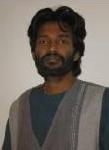
Abhishek describes himself as a social researcher specializing in performative praxis. His interest lies in areas like popular and folk culture, literary criticism, subject formation and governmentality. His research topic at M.A. level was Performance in Flux: The Train Singers in which he tried to study the inter-constitutive nature of tradition and modernity, and the place of the singers in the present societal and economic situation. Abhishek has also directed a documentary film with the singers. He has been awarded the JU-SYLFF Ph.D. fellowship (2006- 09) to research on Performing the Political: Left Culture in West Bengal. Studying the modes of communication in representational politics as popular performance, he wants to analyse public political culture, specificities of election and democracy in India and different roles of the state, people and political parties. A student of Comparative Literature at BA and MA levels; he is a translator and critic. He is also involved in theatre and film. He writes and directs for the theatre group Noutonki, based in Kolkata. Abhishek was instrumental in establishing Fellows (the JU-SYLLF newsletter) with his co-fellows Madhuchanda and Ritajyoti. He and Ritajyoti participated in the SYLFF Asia Pacific Regional Forum in Indonesia in 2005.
E-mail: abhishekbasu.ju@gmail.com
Ritajyoti Bandyopadhyay (M.A.-level Fellow)
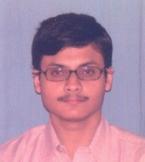
As a masters level SYLFF Fellow (2004-05), Ritajyoti has done some research work on gender, representation and community forest management in West Bengal, India. His objective was to show how community forestry evolved as a normalized system of domination and subordination in which intra-sex categories, (like between men and women) become players in the field of representation, constantly intervened by class, caste, religion, gender and generation backgrounds. His second quest was to chalk out measures so that weaker players can have their voice and choice in the entire system. Ritajyoti was awarded the SYLFF Fellowship for doctoral work in 2006-2007. His academic interests encompass democracy and development which got aptly reflected in his work on Negotiating informality: Changing face of the footpath in kolkata, 1975-2005. Currently he is working as an Assistant Professor as the Center for Studies in Social Sciences, Kolkata.
E-mail: ritajyoti1981@yahoo.com
Duke Ghosh (Doctoral Fellow)

Duke is a Post Graduate in Economics from Jadavpur University. He completed his Post Graduate Diploma in Business Management from the Indian Institute of Management, Calcutta (IIMC). As the 2nd rank holder, he is the recipient of the IIMC Silver Medal and is a member of the IIMC Roll of Honour.
He has almost 10 years of valuable industry experience in both the manufacturing and financial sectors. Starting his career with Exide Industries Limited - the largest Lead Acid Battery Manufacturer in India, he went on to head the corporate logistics department of the company. He then worked as a Credit Analyst in the Corporate Banking division of the UTI Bank Limited.
Currently on a sabbatical from the industry, as a SYLFF Fellow, he is engaged in his doctoral thesis on the analysis of risks associated with the funding of Small and Medium Enterprises (SME) in India. He proposes to explore the possibility of risk-mitigants through institutional arrangements that would promote SME development in India and help the cause of sustainable development.
E-mail: dukeg1@yahoo.com
Payoshni Mitra (Doctoral Fellow)
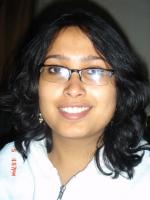
Payoshni, SYLFF Fellow (2005-2008), is doing her doctoral research on Un-gendering Sports: Towards a Revaluation of the Female Athlete in India from the School of Women’s Studies, Jadavpur University, India. Her undergraduate and postgraduate studies were carried out in the Department of English, Jadavpur University.
Payoshni’s interest in the culture of sport stems from her own experience as a University Blue badminton player and as a young sports writer as well as from her engagement with issues of gender and rights. Her doctoral work, studying gender aspects of sports participation and related issues of health, nutrition and body perceptions of Indian female athletes promises to be an important contribution to the discipline of sports and culture studies.
E-mail: payoshnim@gmail.com
Abhishek Basu (Doctoral Fellow)
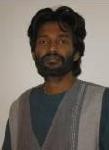
Abhishek describes himself as a social researcher specializing in performative praxis. His interest lies in areas like popular and folk culture, literary criticism, subject formation and governmentality.
His research topic at M.A. level was Performance in Flux: The Train Singers in which he tried to study the inter-constitutive nature of tradition and modernity, and the place of the singers in the present societal and economic situation. The dissertation paper is being examined for publication by a journal.
Abhishek has also directed a documentary film with the singers.
He has been awarded the JU-SYLFF Ph.D. fellowship (2006- 09) to research on Performing the Political: Left Culture in West Bengal. Studying the modes of communication in representational politics as popular performance, he wants to analyse public political culture, specificities of election and democracy in India and different roles of the state, people and political parties.
A student of Comparative Literature at BA and MA levels; he is a translator and critic. He is also involved in theatre and film. He writes and directs for the theatre group Noutonki, based in Kolkata.
Abhishek was instrumental in establishing Fellows (the JU-SYLLF newsletter) with his co-fellows Madhuchanda and Ritajyoti. He and Ritajyoti participated in the SYLFF Asia Pacific Regional Forum in Indonesia in 2005.
E-mail: abhishekbasu.ju@gmail.com
Ritajyoti Bandyopadhya (Doctoral Fellow)
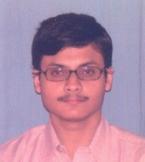
As a masters level SYLFF Fellow (2004-05), Ritajyoti has done some research work on gender, representation and community forest management in West Bengal, India. His objective was to show how community forestry evolved as a normalized system of domination and subordination in which intra-sex categories, (like between men and women) become players in the field of representation, constantly intervened by class, caste, religion, gender and generation backgrounds. His second quest was to chalk out measures so that weaker players can have their voice and choice in the entire system.
Ritajyoti was awarded the SYLFF Fellowship for doctoral work in 2006-2007. His academic interests encompass democracy and development which got aptly reflected in his work on Negotiating informality: Changing face of the footpath in kolkata, 1975-2005.
His hobbies include singing.
E-mail: ritajyoti1981@yahoo.com
Sulagna Maitra (M.A.-level Fellow)
Sulagna completed her a B.A. in Political Science from Calcutta University and her M.A. in International Relations at Jadavpur University. She also has a Diploma in Software Technology from CMC Limited.
As a SYLFF Fellow at the postgraduate level, her research topic was on Inter-State River Water Disputes In India: Institutions And Mechanisms. She examined the nature of the existing federal river water dispute resolution mechanism, the lacunae in the existing institutional framework and tried to suggest reforms for enhancing the efficiency of the existing river water dispute resolution mechanism in India.
E-mail: sulagna.maitra@gmail.com
Bipasa Mukherjee (Doctoral Fellow)
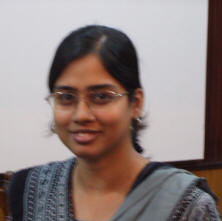
Bipasa completed her B.A. and M.A. in Sociology from University of Burdwan. After a brief stint as a part time lecturer at Bankura Christian College, she moved to Kolkata to pursue an M. Phil programme at the School of Women’s Studies, Jadavpur University.
She has worked as a research coordinator for a project on women domestic workers. Her academic interests encompass various aspects of primary education and child development.
As a SYLLF fellow, Bipasa’s doctoral research is on Quality of primary education: exploring the ideals, methods and practices – a case study of Kolkata.
E-mail: bipasam@gmail.com
Nilanjan Pande (M.A.-level Fellow)
Having completed his graduation from the department of History; Rabindra Bharati University, followed by the Masters’ degree from the department of History; Jadavpur University; Kolkata, he is currently pursuing his M.Phil from the School of Women’s Studies of Jadavpur University.
Blending knowledge and thoughts of his capable tutors along with his own way of looking at things, he has developed a personal inclination towards social history. Society, its phenomenon, its people, various aspects of life and their struggle have never failed to fascinate him. Having seen the reality very close at hand and being equipped with a first hand knowledge of the victims of the crisis, he focused on The erosion afflicted population groups of the Malda district; West Bengal: Identity, Politics, and Livelihood as the area of research as a SYLFF Fellow at the M.A. level (2007-2008).
His hobbies include playing table tennis, cricket and trekking.
E-mail: nilanjan_adda@yahoo.co.in
Shreya Maitra (M.A.-level Fellow)
Sreya pursued her graduate and postgraduate studies in Political Science from Jadavpur University. As a SYLFF Fellow at the master’s level, her study focused on Development Induced Displacement: Compensation and Resettlement. She analysed the nature and issues involved in the traditional development paradigm leading to displacement in India, the lacunae in existing policy framework and legal mechanisms governing displacement, compensation and resettlement. Her work tried to suggest reforms in policy prescriptions for a holistic and more equitable resettlement and compensation package for the population displaced due to development projects.
Sreya is a trained classical vocalist and has passed the Fourth year of a five-year graduate course year in Indian classical music. She holds an Advanced Senior Certificate in French and has deep interest in elocution and amateur theatre.
E-mail: shreya.maitra@gmail.com
Deeptanil Ray (Doctoral Fellow)
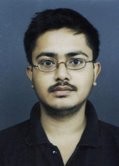
Deeptanil is a postgraduate in English from Jadavpur University. As a doctoral SYLFF Fellow (2008- 2011), he is pursuing research under the Department of English, Jadavpur University. His doctoral study seeks to understand “Self-Image, Control and the English-language press in India”, in a time period immediately preceding the formal introduction of liberalisation in the country.
Deeptanil has worked with the non-profit sector and on the desks of mainstream Indian print media publications like The Telegraph and India Today (Bangla), and as a free-lance journalist for The Statesman; he has a Postgraduate Certificate in Editing and Publishing, from the School of Cultural Texts and Records, Jadavpur University, and Editing as a Skill Project, U.P.E. Programme, U.G.C.
As a researcher, Deeptanil hopes to develop a better understanding of contemporary societies and cultures. His interests are in the history of the book, media and their forms of representation, sequential graphic arts and literary fiction.
When he is not working on his thesis, he's probably reading a good book, dreaming graphic novels, talking politics with friends, playing with his three-year-old niece, finding spiritual harmony in aikido, or is somewhere out on travel.
Email:
Sreerupa Sengupta (Doctoral Fellow)
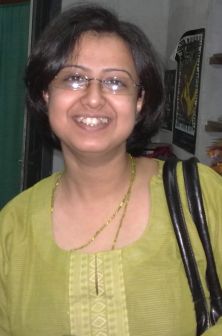
Sreerupa is a graduate in Sociology from Presidency College and has completed her post graduation from Delhi School of Economics. Currently as a SYLFF Fellow (2008-2011), she is pursuing her doctoral research on HIV & AIDS media campaigns in India: Exploring issues of gender and human rights from the School of Women’s Studies (SWS), Jadavpur University, Calcutta. Her study seeks to explore the evolution and transformation of HIV&AIDS media campaigns in India over the years and the issue of funding of these communication programmes which significantly influence the approach and agenda of these campaigns.
Her interest in HIV&AIDS primarily stems from her research experiences during her M.Phil programme at SWS. As a research fellow at the SWS and Action Aid, a leading international NGO, she has had the opportunity to work on diverse issues such as health, education, sexuality and human rights. She has also worked with Graphiti, the Sunday magazine of The Telegraph.
She is a bookworm and enjoys reading mostly fictions.
E-mail: senguptasreerupa2006@gmail.com
Payel Sen (M.A.-level Fellow)

Payal graduated from the Department of Sociology, Presidency College, Calcutta University and is currently pursuing M.A. in the Department of Sociology at Jadavpur University.
During her days in Presidency College, she used to visit the Indian Coffee House on one hand and the Baristas, Café Coffee Days on the other. It was then that she became curious to explore the intricacies of cultural differences at these two kinds of coffee shops. As a M.A. SYLFF Fellow (2008-2009) she finally got the opportunity to do an intensive study in her field of interest. Her project titled “Coffee house to barista: A study of cultural change”, focuses on changes in the lifestyle of the residents of Kolkata as indicated through their changing coffee-drinking patterns.
She has received lessons in classical dance for 8 years and enjoys composing poems even when she’s busy with studies.
E-mail: payalsen27@yahoo.co.in
Shubhasree Bhattacharyya (Doctoral Fellow)
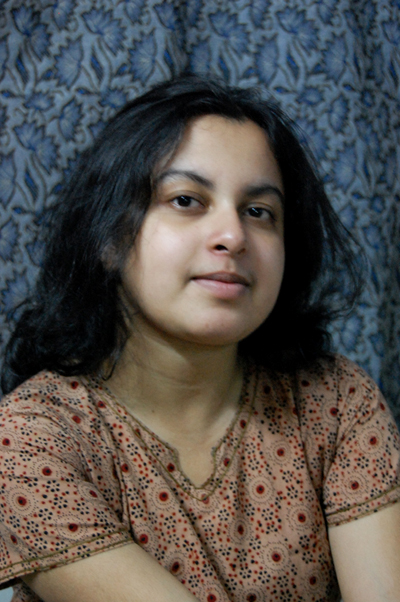
Shubhasree Bhattacharyya did her graduation and post graduation in Comparative Literature from Jadavpur University. She has also completed the Research Training Programme (RTP) from the Centre for Studies in Social Sciences, Kolkata. She is currently a SYLFF Doctoral Fellow (2009-2012) at the Department of Comparative Literature, Jadavpur University. Her research is on ‘Song in Work, Contemporary Labour/Work Songs in the Urban Space’ (tentative title).The research would study this practice of singing at work from a comparative perspective together with varied conceptions regarding work, labour, worker and labourer. The perfomative aspects of such songs, the labouring body as well as the changing soundscape of the city would also come under discussion. Such an attempt would open up different engagements with particular sectors of a mobile and migrant population in negotiation with their ever changing workplaces.
Shubhasree has done some work in translation, editing and films. She has co-directed a documentary The Aura of Development (2008). She is keen on making an audio-visual documentation on the topic of her research.
This apart, she loves to travel.
Email: sbcomplit@gmail.com
Shyamasree Dasgupta (M.Phil–level Fellow)
Shyamasree did her graduation from Asutosh College, Kolkata and post graduation from Delhi School of Economics. Her research interests revolve around the area of sustainable development – environment, health and education.
She has worked as a Junior Research Fellow in a project on ‘Revisiting Education for All’ supported by International Development Research Centre (IDRC) which was a field based quantitative study of the situation of schooling in rural North India.
Shymasree is an M.Phil level SYLFF Fellow (2009-2010). Her research will analyse the role of forest as a carbon sink in the present context of global climate change. The world is now looking towards a sustainable solution to reduce carbon concentration in the atmosphere and in that context how the carbon capturing capacity of forest lands could be used sustainably becomes an issue of immense importance. Her work will investigate how a country can enter the global carbon market with its forest land as a carbon sink and hence take active part in carbon reduction. The study will examine the issue from the perspective of a developing country.
Shyamasree spends her leisure hours reading books and watching movies.
Sebanti Chatterjee (M.A.-level Fellow)
Sebanti completed her graduation in Sociology from Presidency College in 2008. Currently she is pursuing Masters in the same subject from Jadavpur University. Sebanti has also won the SYLFF Fellowship.
As a M.A. Level SYLFF Fellow (2009-2010) her research focuses on an offbeat arena of sociology - namely sociology of music. She will work in the area of western classical music – attempting to study the shifts in the socio-economic positions of the western classical musicians in Kolkata. The objective of her work is to understand a profession which is not only unconventional but also isn’t indigenous. Alongside these, the scope and utility of music therapy will be explored.
Sebanti partakes in a diverse set of activities which includes being a member of the Rotaract - a youth pro gramme of rotary international, learning Spanish at The Ramakrishna Mission Institute of Culture and also the western classical guitar.
She has interned with ASHA - an NGO dealing with women and children in unorganized sectors and their health problems. Later she also worked with them on a part time basis. Besides she has worked with TERI (an NGO dealing with environment problems and climate change) and Mothers heart (an animal lovers association).
E-mail: sebanti@gmail.com
Neha Chatterji (M.A.-level Fellow)
Neha graduated in History from Jadavpur University. Currently she is pursuing her post graduate studies in the same department. She has received the M.A.-level SYLFF fellowship for 2009-10.
She has a general interest in the endeavour to comprehend the unfolding of social and political processes accompanying the transition from the colonial to the post-colonial regime in the Indian subcontinent as well as their current dynamics. With an inclination to understand the terms of political articulations of particular disaffected groups in documents of resistance in India’s democratic polity, she plans to work on forms of peasant-response to the contemporary marginalization of peasants, by taking up two contrasting traditions of peasant-mobilization- the Bharatiya Kisan Union in Western Uttar Pradesh and the Krishak Sabha in West Bengal.
Neha takes a keen interest in literature, in philosophy, and in Indian music.
E-mail: nehachatterjee.ju@gmail.com
Rimple Mehta (Doctoral fellow)
Rimple completed B.A. (Hons) in Sociology from St. Xavier's College, Kolkata and after a year of working with an NGO called Nayeedisha, moved on to do an M.A. in Social Work (with a specialization in Women Centered Social Work) from the Tata Institute of Social Sciences, Mumbai. She was awarded the Dr. Maria Mies Prize for scoring the highest marks in M.A. dissertation on ‘Honour Crimes against Women in Rajasthan’. While doing her post graduate studies, Rimple also worked on the issue of violence against women. As part of her field work she worked with SNEHA (Society for Nutrition, Education and Health Action), Mumbai and later with Prayas (a field action project of Tata Institute of Social Sciences working for the rehabilitation of women, children and youth affected by crime or prostitution and their families). After the completion of M.A. Rimple worked with the Global Change Programme in Jadavpur University as a Research Associate and thereafter with Swayam, a Kolkata based NGO. CRY, Vikramshila, Praajak are some of the NGOs that she has volunteered with over the years.
Currently she is a SYLFF Doctoral fellow in the School of Women’s Studies, Jadavpur University. Her research tentatively titled ‘Gendered Borders: Illegal Migration and Deportation of Bangladeshi Women from India’ seeks to engage with the experiences of the Bangladeshi women in prisons and look at the extent to which the patriarchal nature of the society and the state has an impact on their experiences. It is an issue which emerged during her field work placement for a year in the women’s under trial prison.
As a person Rimple finds human relationships and their complexities intriguing. She enjoys reading mostly non-fiction books, though often it’s difficult to demarcate the boundaries of fiction and non-fiction. Travelling and painting are some of her other interests.
Shailza Rai (M.A.-level fellow)
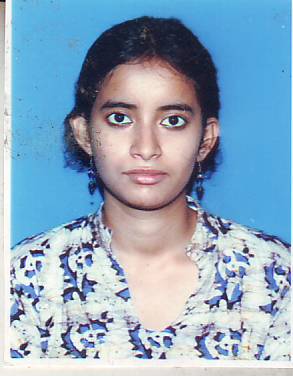
Shailza is pursuing post graduate studies in Comparative Literature at Jadavpur University. As a M.A.–level SYLFF fellow Shailza feels winning the fellowship has been a wonderful event in her life as it has given her an excellent opportunity to present her work at an international platform.
Her research deals with wall painting in Bihar, more specifically in Bhojpuri speaking areas in Bihar. The research looks at the political and cultural dynamics that gave Mithila wall painting an edge over other local expressions. It also looks at the nascent effort of other regions (specifically Bhojpuri speaking areas) to popularise their local expressions.
The aim of her research is two-fold – a) to understand the tradition that determines the nature of wall painting at its base and then how promotion of one expression over other determines its survival. She will be looking at politics of re-presentation and the nature of intellectual interest in the wall painting
b) to analyse the nature of change in tradition itself where a complex ritual art as wall painting is being carried across time. In this context she intends to examine the medium, mode and expression of the art form.
Shailza has also written articles on her research interests. Her publications include –
Burma (translated by Shailza) in Jatindra Kumar Nayak and Parthasarathi Bhaumik (ed.), ‘Memory, Images, Imagination’ and Identity and its monsters: borders within and without, in Debra Castillo and Kavita Punjabi (ed.) ‘Cartographies of Affect: Across Borders in South Asia and the Americas’ (forthcoming). She has also freelanced for the internet portal of Times of India.
She likes learning new languages and is currently learning Russian. Shailza also enjoys sketching, painting and writing. She has a diploma in painting. She is a Roteractor and has volunteered as a drawing teacher in projects supported by Roteract.
E-mail: shailza_kingscabbages@yahoo.co.in
Nilanjan Das (M.A.-level fellow)
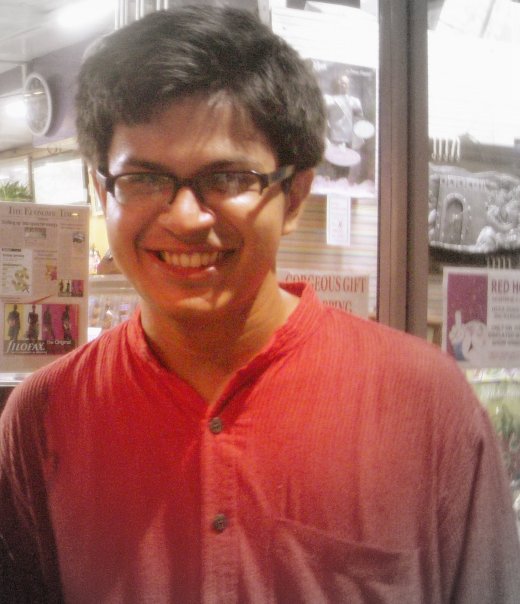
Nilanjan graduated in Philosophy from Jadavpur University. Currently he is pursuing his postgraduate studies in the same subject. His research interests lie in Mathematical Logic, Philosophy of Mind, Moral and Legal Philosophy. Apart from western philosophy, Nilanjan takes an avid interest in Indian philosophy. He has studied Sanskrit texts of Nyāya and Vedānta with traditional scholars.
He received the SYLFF-JU fellowship in 2010. His research on ‘Justice as a Moral Concept’ examines the use of moral concepts in legal theory and practice. Nilanjan aims to evaluate formal and quasi-formal approaches that have already been adopted in legal theory, especially in the work of legal positivists who refuse to admit any moral element into the definition of the law. The objective of this research is to develop an alternative model of legal systems which will allow the domain of legal values to interact with the domain of moral values, without surrendering its own autonomy.
Nilanjan has already written some articles on his areas of interest. His works have been published in reputed journals. They are as follows –
- “Laksana as Inference” forthcoming in a special issue of Journal of Indian Philosophy, 2010.
- “The Concept of Thinking: A Reappraisal of Ryle’s Work”, Proceedings of the International Seminar on Mind, Brain and Consciousness, VPM College, Thane, 2010.
- “Kusuma-Anjali-Viveka: A Dialogue”, Jadavpur Journal of Philosophy, Volume 18 Number 2, 2008.
- “Moksasya Pumarthatānirupanam”, Sanskrit Sāhitya Parishat Patrikā, Vol. LXXXX No. pt. 1-4, April 2007 to March 2008. (A Sanskrit paper on the idea of moksa in Vedanta).
- “Nyāyakusumāñjalau Anupapattih”, Sanskrit Sāhitya Parishat Patrikā, Vol. LXXXIX Nos. 1-4, April 2006 to March 2007. (A Sanskrit paper on Udayana’s Nyāyakusumāñjali.)
He has received training in Hindusthani classical music from the age of five and has also learnt a 19th century Bengali musical genre, called tappa, from Pandit Chandidas Mal.
E-mail: nilanj.das@gmail.com
Shyamasree Dasgupta (Doctoral fellow)
Shyamasree did her graduation from Asutosh College, Kolkata and post graduation from Delhi School of Economics. Her research interests revolve around the area of sustainable development, environment, health and education.
She has worked as a Junior Research Fellow in a project on ‘Revisiting Education for All’ supported by International Development Research Centre (IDRC) which was a field based quantitative study of the situation of schooling in rural North India.
Shymasree completed her M.Phil from the Department of Economics, Jadavpur University. She was awarded the SYLFF Fellowship for her M.Phil research (2009-2010) which sought to understand the productivity growth and climate change mitigation potential of Indian manufacturing sector. Currently she is enrolled in the same department as a doctoral fellow and has won the SYLFF Fellowship for her doctoral project (2011-13).
Her research interests revolve around the area of sustainable development- a three pillar (economic, social and environmental) approach focusing on long-term changes across local and global scales, including innovations in technology, institutions and behaviour. The adoption of National Action Plan on Climate Change (NAPCC) in India in 2008 is a move towards ensuring the country’s sustainability, secure and efficient energy use and designing comprehensive policies towards climate change mitigation. As the success of such an experimental policy like NAPCC would depend on several sustainability criteria, her research focuses on the researching NAPCC creating opportunities and barriers towards sustainability transition of the development pathway in India, the extent to which NAPCC could achieve environmental sustainability, especially with respect to energy use and its social viability. Her research is expected to generate a framework for evaluation and a literary database evaluating the role of climate change mitigation policies towards sustainable development in India.
Shyamasree spends her leisure hours reading books and watching movies.
Suneha Kandpal (M.Phil-level fellow)
“Woods are lovely, dark and deep
But I have promises to keep
Miles to go before I sleep
Miles to go before I sleep...”
These immortal lines by Robert Frost have always been Suneha’s inspiration in her life.
Suneha Kandpal graduated in Psychology from University of Delhi in 2004 followed by Masters in Social Work from Department of Social Work, University of Delhi in 2006. After her post graduate studies, Suneha worked with various organizations and on issues such as mental health, sexual violence and HIV and AIDS.
She is currently pursuing MPhil in Women Studies from Jadavpur University and has won the Sylff fellowship (2011-2012) to conduct research on the complex realities of victims/survivors of domestic and sexual violence, nature and quality of services provided to them. Suneha says, “I was 13 years old when I watched a movie titled “Damini”. This movie portrayed the ordeals of a rape victim in her fight for justice. The movie significantly impacted my young mind and enthused me to understand and work on the issue in future.” It was after post graduation that Suneha got an opportunity to work with women and children of sexual violence and trafficking. These experiences helped her to zero in on her research topic for MPhil (Women Studies).
Suneha’s research seeks to understand and assess the nature and the quality of services provided to the victims/survivors. Hence, it will be a critical analysis of the services and implementation of RCICs in Delhi which will be compared to Sexual Assault Referral Centres (SARCs) operating in Manchester, UK.
Her study in this domain will help her develop critical perspectives on the issue and also enrich her research skills. In due course such work will facilitate in realising her long impending dream of establishing an organization which would exclusively work on the issue of sexual violence against women.
Suneha is a vociferous reader, loves listening to music, travelling and singing. In addition she is passionate about food and enjoys cooking.
Email - suneha83@gmail.com
Saumyashree Ghosh (M.A.-level fellow)
Saumyashree graduated in History from Jadavpur University. Currently, she is pursuing her postgraduate studies in the same subject. She received the Sylff Fellowship at the masters level to conduct a study on the malling of factories in post-liberalization era and how such projects are driven by the promise of a ‘world class’ city, both at ideological and material levels. Saumyashree intends to take up the story of labour of the Usha Factory and its changeover to the South City mall, along the stretch of the Anwar Shah Road, as a case study.
Winning this fellowship has been an important feat in Saumyashree’s life. As a researcher, Saumyashree feels the Sylff Fellowship will enable her pursue research on her favourite theme as well as provide an excellent opportunity to engage creatively with other disciplines which would enrich her perspective.
Her research interests involve exploring different aspects of socio-political and cultural processes, mostly of the colonial times of India. Urban history and history of art are some of her other academic interests.
Saumyashree has received training in painting from a very young age. She enjoys reading and has a penchant for music, films, and translating texts (from Bengali to English).
Email: shree.ghosh2010@gmail.com
Aritra Chakraborti (Doctoral fellow)
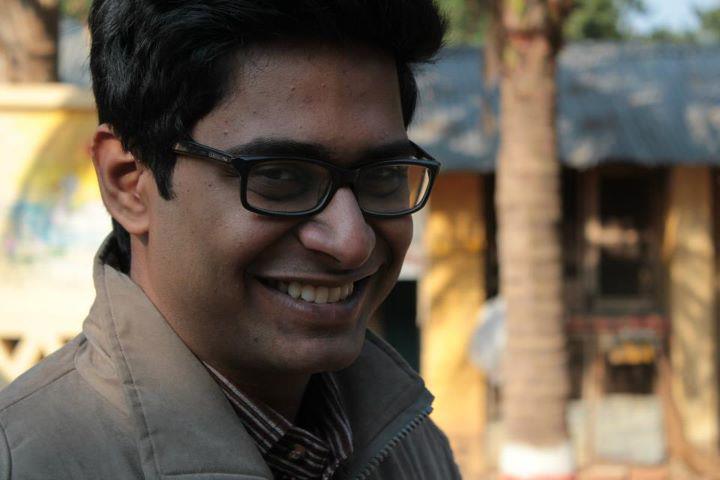
Aritra is pursuing his doctoral research in the Department of English, Jadavpur University. He is working on street literature with a special focus on chapbooks and pamphlets written on topical issues. His research seeks to understand their roles as pre-electronic information systems and how they continue to exist deep into the age of the omnipresent electronic media.
Aritra has previously done an MPhil on the culture of erotica and censorship in 19th century Bengal. For this research he has received a short term research grant from the Leverhulme Foundation-funded Commodities and Culture Research Network. He joined the School of Cultural Texts and Records (SCTR) as a project fellow, right after he finished his MA in 2008. He has worked there in projects funded by the British Library, the British Council and the Ministry of Culture, Government of India. During his stay at the SCTR he has played his part in the creation of the largest extant archive of contemporary Bengali Street literature. He has also helped curate an exhibition on the history of printing in Bengal.
As a researcher, his main interest lies in the history of print-culture and media-anthropology. Through his research Aritra hopes to develop a better understanding of the role news-media plays in the structural politics of the society.
When he is not working in the archives or doing the ethnographic studies of the chapbook market, he is perhaps submerged in a science-fiction novel, or watching a film or fiddling with his camera. As a child his favourite character was Captain Nemo, and perhaps it is he who still inspires the wanderlust in him.
Email: chakraborti.aritra@gmail.com
Anindita Roy (M.Phil-fellow)
Anindita did her M.A. in Comparative Literature with specialization in Latin American literatures, translation studies and comparative cultural studies from Jadavpur University. Currently she is in the M. Phil programme in the School of Cognitive Science, Jadavpur University.
As a SYLFF Fellow she proposes to investigate how interactive tools of communication can be used on an everyday basis to cope with the different stages of child development and differences in psychological orientations. According to Anindita this understanding will not only help children take charge of their lives, but will hopefully nurture them as peer educators in team or group settings, as well as help adults understand the various factors that disturb child development and help take children’s views, voices and concerns more seriously.
Her areas of interest include narrative therapy and child cognition.
She has organised, coordinated and participated in several projects, programmes on children. Anindita was an integral part of the children’s special programme called Shishu Tirtho aired on the Community Radio of Jadavpur University. She was associated with the UNICEF Community Radio Child Reporter Project of School of Media, Communication and Culture. She has also conducted training sessions with children from slum areas, local government schools and those who are visually challenged to become radio reporters.
Anindita takes interest in gender and health too. She has participated in Cancer Awareness Camps and Anti- Tobacco Camps and has conducted workshops on gender and HIV & AIDS in Thoughtshop Foundation, an NGO based in Kolkata.
Email ID: drellelle@gmail.com
Sohini Banerjee (M.A.-level fellow)
Sohini Banerjee graduated in English from Jadavpur University in 2011, and is currently pursuing her postgraduate studies. She has been awarded a SYLFF Fellowship (2012-13) for her project on the rise of old-age homes in Calcutta, tentatively titled Age-Old Truths: The Growth of Old-Age Homes in Calcutta and the Decline of the ‘Moral’ City. For the project, Sohini aims to combine her leadership skills with her passion for modernist literature and to adopt an interdisciplinary approach towards the question of old-age homes in Calcutta as a by-product of living in the modern city.
The existence of the old-age home speaks of a problematic sphere of society, one where lesser abled (and therefore “expendable”) people are segregated into a separate community. This sudden reinterpretation of human beings as economic entities is a by-product of rapid industrialization and economic development in a city such as Calcutta, whose people are traditionally known to be attached to past values, placing far greater emphasis on relationships than on profit. Sohini's research looks at the emergence of old-age homes, traces the history of the growth of the institution and analyzes its place in the society. The study will investigate the transportation of the language of economics and development into the social sphere, and into the very idea of value.
Sohini is a creative writer, a singer, a painter, as well as an avid photographer. She likes old music, old films, and old photographs, and sometimes she likes traveling the world.
Email ID: :sohini17@gmail.com">sohini17@gmail.com
Nikhilesh Bhattacharya (Doctoral fellow)
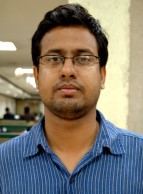
Nikhilesh studied English literature in Jadavpur University. Later he worked as a sports journalist in the Hindustan Times newspaper, covering cricket, occasionally rugby and, once in a blue moon, hockey. He hopes to combine his training in literature with his experience as a reporter to take a fresh look at the history of a marginalised community in a sport where India has long lost its domination.
Currently, he is a doctoral fellow attached to the School of Cultural Texts and Records (SCTR), Jadavpur University. His research focuses on the role of Calcutta's Anglo-Indian community in the early history of Indian hockey. Nikhilesh received the SYLFF fellowship for his doctoral research in 2013.
In 2014, Nikhilesh started a blog, Indian Dribble (www.indiandribble.blogspot.in), on Indian hockey's journey at the Olympics. The first phase looks at the 1928 Amsterdam Olympics where British India won its maiden gold medal in field hockey.
His hobbies include: Watching, playing and writing on sport.
Select list of publications:
1. Bhattacharya, Nikhilesh. "Sukumar Ray: The History of a Humorous Man." In Crazy Tales of Pagla Dashu and Co, by Sukumar Ray, translated by Jadavpur University Translators' Collective. Gurgaon: Hachette India, 2012. 147-187.
2. Bhattacharya, Nikhilesh. Review of Bhiwani Junction: The Untold Story of Boxing in India, by Shamya Dasgupta. The International Journal of the History of Sport, (Jan. 2013). DOI:10.1080/09523367.2012.751231.
2. Bhattacharya, Nikhilesh. "Sport and the 'Nation': Heterogeneous Perspectives." Review of People at Play: Sport, Culture and Nationalism, edited Amitava Chatterjee. Sephis e-magazine, 9.3 (July 2013): 40-43. http://sephisemagazine.org/issues/volume_9_3.pdf.
Email: nikhilesh1981@gmail.com
Anwesha Sengupta (M.A.-level fellow)
Anwesha has completed her bachelor’s in History in Jadavpur University. Currently she is pursuing her Masters in History, also from Jadavpur University.
She has been awarded the SYLFF Fellowship at the Masters level for her research entitled From City Calls to City Walls: Emergence of Gated Communities and its impact on the Pheriwallah / wallihs of Kolkata. Her research explores the extent to which the creation of the ‘gated communities’ in Kolkata has impeded the mode of merchandising for the Pheriwallah/wallihs and the ways in which they have adopted to it. Analysing this living space-livelihood conflict, her research aims to reflect on the nature of the city’s ‘development’ and how it has been accommodating its variegated population.
Since school, Anwesha has been actively involved in Debating and has initiated and organized several debates in the University including a national debating tournament (Voxpop). She was also awarded the Best Female All-Rounder Graduate Award (Pratibhamoyee Gold Centered SilverMedal) in 2012.
Her interests include learning languages, public speaking and classical music.
Email: anwesha.sk@gmail.com
Judhajit Sarkar (M.A.-level fellow)
Judhajit is pursuing MA at the Department of Comparative Literature, Jadavpur University. He obtained his Bachelors’ degree in Comparative Literature from the same institution in 2012.
Judhajit received SYLFF Fellowship in 2013 for pursuing research on the cultural practices of Madariyya Sufis in Bengal. His principal areas of interest are Indian literary cultures and comparative literary methodology.
He has been instrumental in building the Forum for “Marginalized” Language-Cultures, an experimental and interventional body functioning under the aegis of Centre of Advanced Study in Comparative Literature, Jadavpur University. He has organized, as one of the student conveners, the fifth and sixth annual Debrupa Bal Memorial Students’ National Seminar at the Department of Comparative Literature, Jadavpur University.
Judhjit presented a 12-episode long radio-series on “Literatures of Bhakti Movement in Medieval India” for ‘Radioju 90.8 MHz’ (Community radio of Jadavpur University). He works as a peer-reviewer for ‘Inquire: Journal of Comparative Literature’ published by Graduate students from the Program in Comparative Literature, University of Alberta. He has translated into English the textbook Our Environment, meant for the students of class III studying under the West Bengal Board of Primary Education.
Judhajit considers himself a connoisseur of Indian literatures and popular cultures.
E-Mail ID: judhajitsarkar2@gmail.com
Shounak Set (M.A.-level fellow)
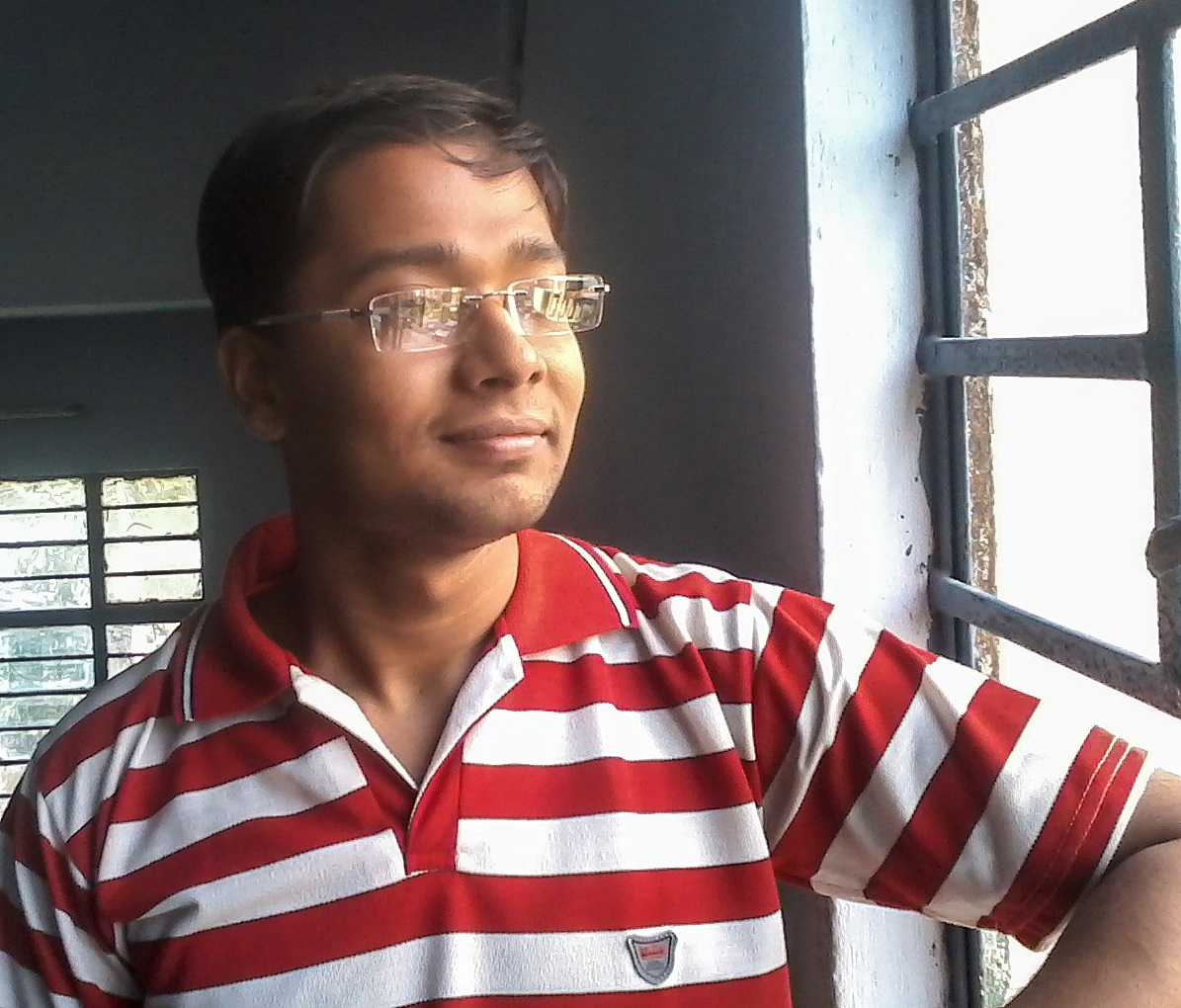
Shounak completed his B.A. in Political Science from Jadavpur University and was awarded the University Gold Medal for standing first in order of merit. Currently pursuing his Masters in International Relations from Jadavpur University, he has been awarded the SYLFF Fellowship for 2013-14 for the proposal, “Impact and Implications of Information and Communication Technology in Rural India”.
As an MA Level SYLFF Fellow, Shounak’s research focuses on a novel area of political science: the politics of technology. The popular mirage of objectivity notwithstanding, technology reflects the inherent normative biases of the entrenched social and political foundations; yet its potency renders it as the sake and site of struggle, the effect of which defies prediction. Analyzing the effect of the operative forces of Information and Communication Technology on extant societal structures from a social science perspective, the research aims to widen the ambit of knowledge and discern possible ways to negotiate the limitations of the process.
Shounak has a penchant for extra-curricular activities which has led him to be associated with several initiatives including the International Relations Scholastic Conclave in 2011, an annual calendar event in the Department of International Relations, JU, and Clarion in 2013, the student magazine of the JU Art and Literary Society; both of which he conceptualized and convened. He has been awarded the P.K.Banerjee Silver Medal for the best all round graduate.
A voracious reader, Shounak likes studying and debating current affairs and is fond of adventure sports and equestrianism.
Email ID: set.shounak@gmail.com
Reep Pandi Lepcha (Doctoral fellow)
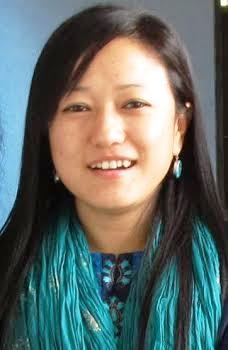
Reep joined the Department of English, Jadavpur University as an undergraduate student in 2004 and stayed on to finish her Masters in 2009. Taking a brief sabbatical from studies she worked as a voluntary teacher in a school for underprivileged children in Sikkim. She was appointed Assistant Professor in Sikkim Government College in 2012. Reep returned to her alma-mater to pursue her doctoral studies, where she was awarded the SYLFF fellowship in 2014. She is currently travelling and collecting Lepcha folktales and myths and recording the life-histories of the folklorists. Her concern for the diminishing folklore tradition and the fact that there has been very little documentation of the tales from her community have steered her in the direction of conducting research in this field.
Apart from scholarly meanderings, Reep loves painting, swimming and taking quiet walks.
Email ID: ashidona@gmail.com
Natasha Upadhyay (M.A.-level Fellow)

Natasha is currently pursuing her masters in political science with specialization in international relations from the Department of International Relations, Jadavpur University. Her experiences and interest in the empowerment of society led her to volunteer for the New Light Foundation, a Kolkata-based NGO dealing with rights of sex workers and their children, and Greenpeace. In her year off after school, as an exploratory break, she learnt about the conditions of education in her hometown, Purnea in Bihar, for low income families and helped in the alleviation of quality education in the local area. In school, she took an active part in debates and other activities as well as serving as the school and hostel captain. She continues to take part in events at the university level and serve as the class representative. Natasha was also selected for a rural exposure program at Kraska, Rajasthan where she assisted in the project on the ruralurban divide and interned at the National Human Rights Commission.
Her main objective as a research fellow is to understand the elementary factors that impede in the social, economic and legal rights of the transgender community in Kolkata and through her paper, learn and assist in their overall development.
When she is not involved with her research work and developing her skills, music, books and movies from all over the world are a perpetual treat. Besides this, she can spend hours painting and cooking. Natasha is quite passionate about the Vienna Philharmonic and hopes to see them perform someday.
Email: natashaupadhyay1@gmail.com
Sudeshna Dutta (Doctoral fellow)
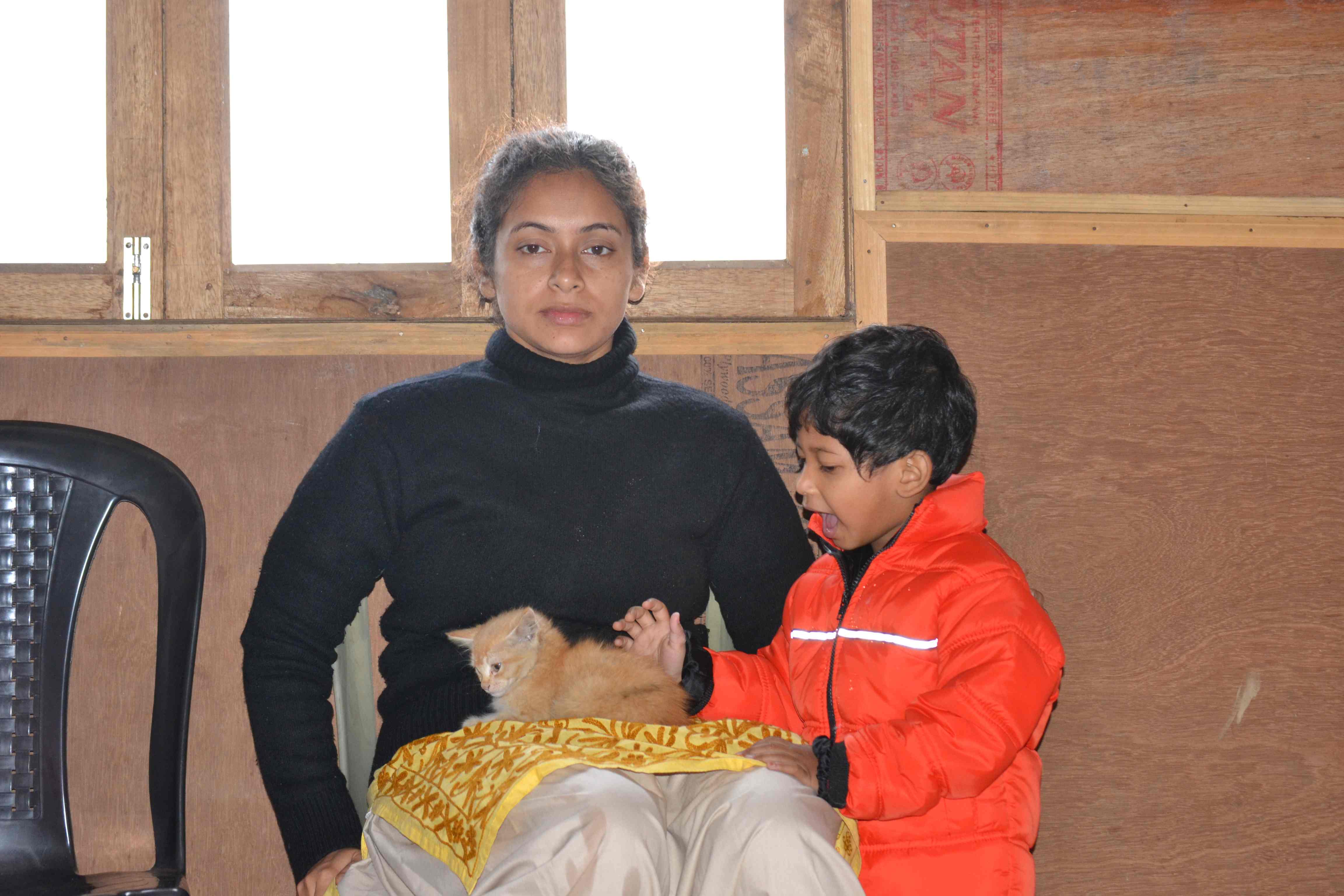
Sudeshna is doing her Ph.D. from the Comparative Literature department of Jadavpur University. She did her under-graduation and post-graduation from the same department. After getting a gold medal in her post-graduation, she decided to join a girls’ school as a teacher. She encouraged her students to participate in various cultural programmes. She believes unfettered emancipation of women can bring decisive change in society.
She is passionate about understanding social dynamics of Indian society. That is why her research area is located around the life stories of Dalit and Adivasi women of India.
Apart from reading books, she is addicted to Hindustani classical music and Bengali theatre. She plays the part of an amateur translator too. Co-operation and courage are the two driving forces in her life
Email: duttasudeshna03@gmail.com
Purbasha Auddy (Doctoral fellow)
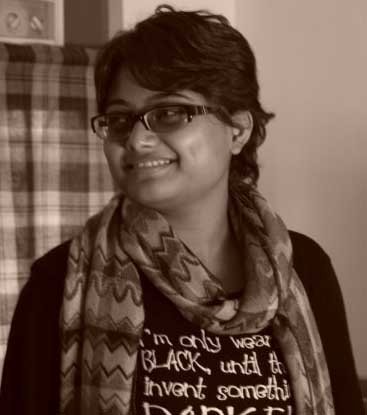
After pursuing an MA degree in Film Studies from Jadavpur University, she joined the School of Cultural Texts and Records. It has been eight years that she has been associated with this inter-disciplinary centre at Jadavpur University which undertakes digitisation of rare books and documentation of Bengali cultural material at large. She has supervised various digitisation projects, the Bichitra online Tagore variorum project being one among them. While doing these projects, she somehow felt that the first fifty years of publication of Bengali periodicals (1818-1867) has very interesting aspects. Those aspects need to be documented in a descriptive manner. She registered herself as a PhD scholar at SCTR and started planning the aforementioned research. Meanwhile she got the SYLFF award. Her research can be classified as book history and bibliography studies. She is also exploring a relatively new field called Digital Humanities which encompasses digital culture and also the history of the internet in India.
Kheya Samaddar (M.Phil fellow)
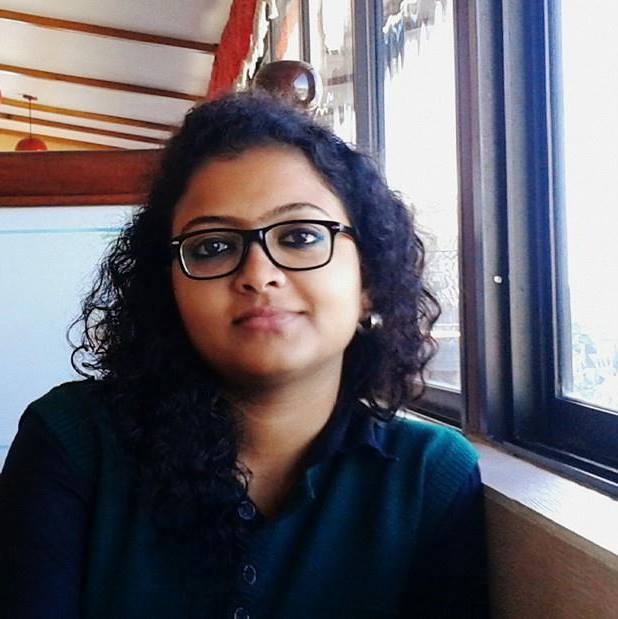
Mayuri Banerjee (M.A. Fellow)
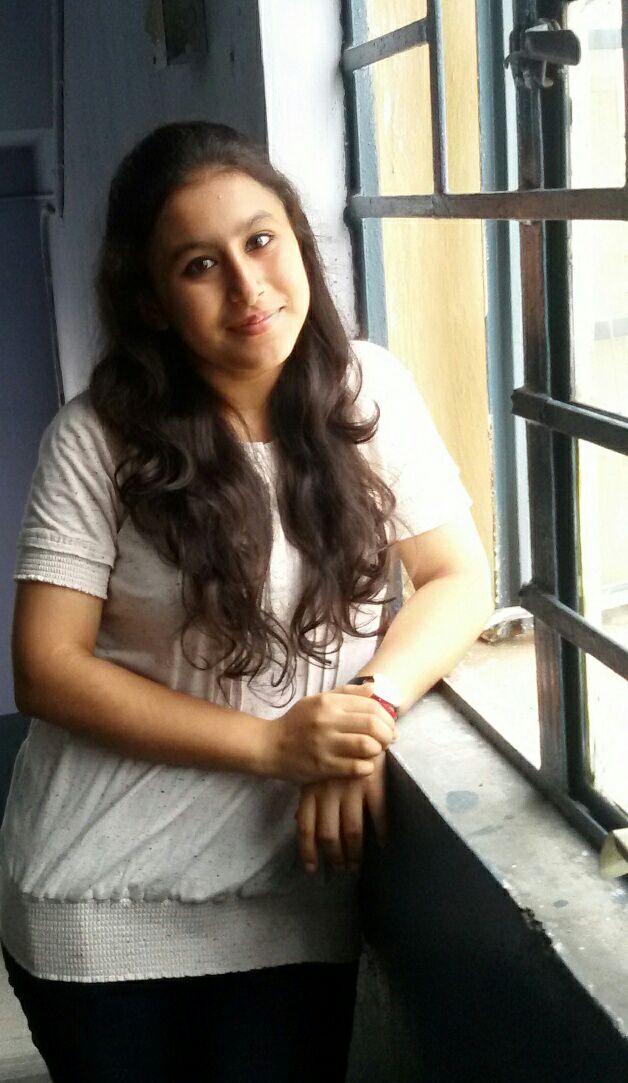
Mayuri Banerjee joined Jadavpur University as a student of Political Science in 2011, she is now pursuing Masters in Political Science with specialization in International Relations from the Department of International Relations. She is an active member of JAIR and also serves as one of the editors of JAIR Students’ magazine.
Gender is her primary area of interest where she is keen on studying women in international politics and plight of refugees in developing societies. She also engages in academic debates and discussion on issues of security and strategy concerning Indian foreign policy and International arena at large. Her present research concerns rape and stereotyping of victimhood in society. The purpose of her research is to understand the prevailing attitude towards rape and rape victims in society and how it can impact the legal enforcement mechanism.
She continues to take part in University level events and has presented papers on International politics, globalization and gender violence. She aspires to pursue a career as a researcher and a professor; she also hopes to work for United Nations Women’s Commission someday.
Email: mayuribanerjee93@gmail.com
Apart from academics she loves reading poetry and fiction and hopes to travel and live all around the world.
Soumya Bhowmick (M.A. Fellow)
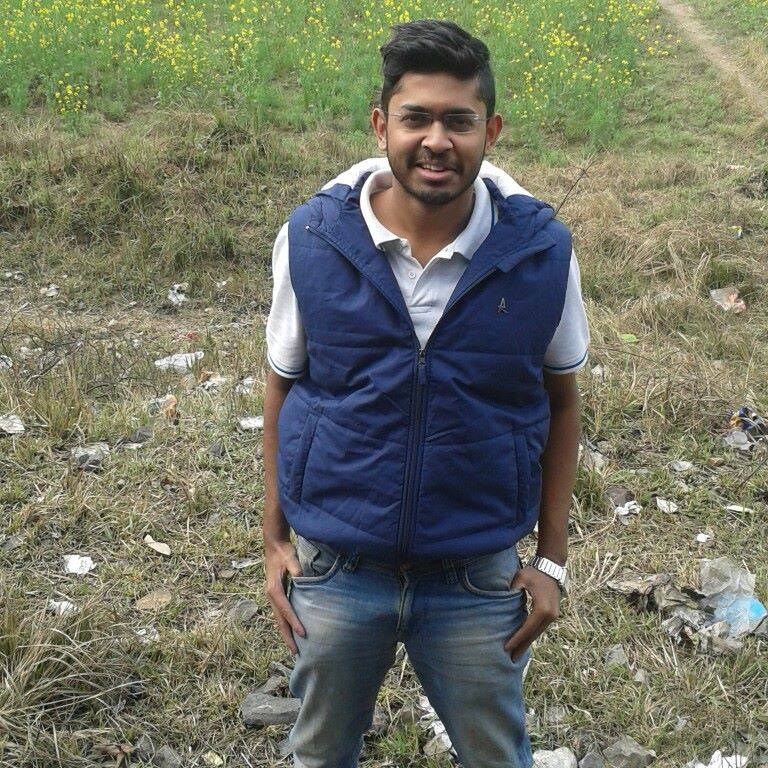
Soumya is currently in the final year of his M.A. Degree (Economics) from Jadavpur University after successfully completing a year-long Exchange Programme from Momoyama Gakuin University, Japan with the prestigious Japan Student Services Organization Scholarship. He has been associated with human rights activism, community development, environmental advocacy and social entrepreneurship for a long time and has interned at various places such as Child Rights and You; Greenpeace; HDB Financial Services; New Light (an NGO based in Kalighat for sex workers and their children); IKURE Techsoft Pvt. Ltd. (Social Entrepreneurship firm based in Kolkata); National Human Rights Commission; Osaka UNESCO Association, Japan; Grameen Bank in Dhaka, Bangladesh; Indian Market Research Bureau International in Kolkata. He was selected as one of the six participants representing India and presented a research paper at the South Asian Economics Students’ Meet held in Kathmandu, Nepal in 2012 on the theme “Green Accounting And GDP: Greening The GDP For South Asian Economies.”
His basic objective as a SYLFF research fellow is to investigate the market for Terracotta in Bankura District, West Bengal. He wishes to analyze the demand patterns for this scarce art form.
Email: soumya.bhowmick@yahoo.in
Soumya loves to travel, be it trekking, hitchhiking, camping, he likes exploring new places and meeting new people. He is fluent in the Japanese language and is pursuing a diploma degree on the same at Jadavpur University.
Sujaan Mukherjee (Doctoral fellow)
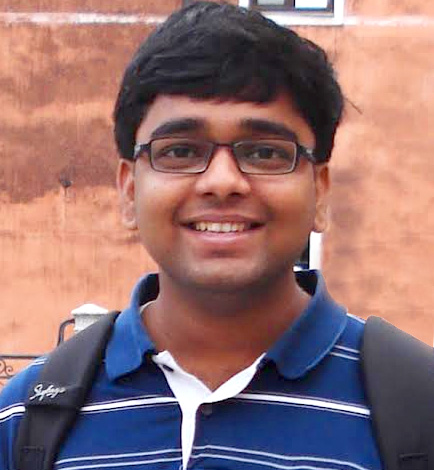
Sujaan completed his Bachelors and Masters in English from Jadavpur University. During his final year, he got involved in the UGC-UKIERI project, Envisioning the Indian City, which was a collaboration between Jadavpur University and the University of Liverpool. He worked on this project for two years as Project Fellow. Alongside, he acquired a PG Diploma in the Digital Humanities and Cultural Informatics from the School of Cultural Texts and Records, J.U., and joined and contributed to other projects, such as theJewish Community of Calcutta online archive, theScottish Cemetery project (Presidency University), and the Physical Cultures of Bengal project (J.U.). In 2015, Sujaan won the Archival Fellowship offered by the India Foundation for the Arts (Bangalore) and worked with the archives at the Centre for Studies in Social Sciences. The research culminated in an public exhibition on the history of tourism in Calcutta. Sujaan was also research fellow for the Augmented Reality project, an offshoot of ETIC, that was developed in collaboration with the University of Liverpool and the British Library (London), resulting in the App layer, 'Timescape: Kolkata'. In 2015 he started working at the Department of English on his PhD, which is on the politics of remembering and forgetting in the city of Calcutta/Kolkata, basing his research primarily around the spaces of death, such as burial grounds and cremation ghats.
Email: sujaanmukherjee@gmail.com
Abhijit Sadhukhan (M.Phil fellow)
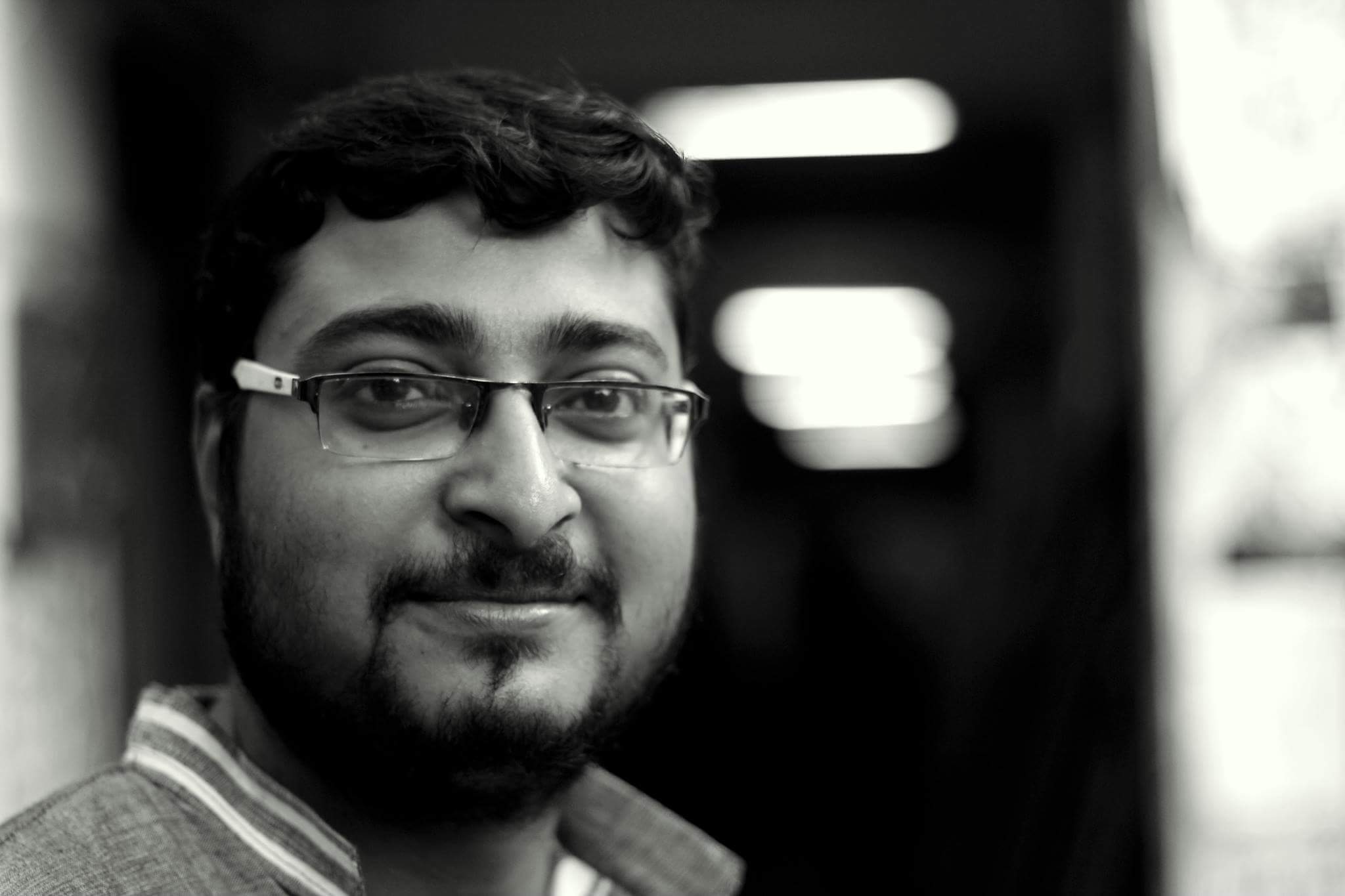
After completing schooling from Burdwan Town School, Abhijit joined Jadavpur University in 2009 and completed his bachelor's degree (2009-12) and master’s degree (2012-14) from here. His primary academic area of interest is medieval Indian literature, more specifically medieval Bangla literature and culture. He is currently working on caste system in Goudiya Vaisnavism (16th-17th century) and trying to explore the impact of other religious sects prevalent in India, before and in the time of Chaitanya Deva himself,on Goudiya Vaisnavism regarding caste regulations. He has a few publications in esteemed journals. In M.A level,he worked on Religious Incorporation and Different Tendencies :Satipithas of Bengal,which is still unpublished. He has also completed basic and advanced level certificate courses on Buddhist Studies from the ICPR Centre for Buddhist Studies at Jadavpur University and a certificate course on Manuscriptology and Paleography from the same institution. Abhijit is interested in learning Indian languages and is currently trying to be skilled in Oriya and Pali.
Apart from these, Abhijit is a sports lover and likes to watch cricket and football specially. He is also very passionate about traveling around the country.
Email: asadhukhan272@gmail.com
Sawon Chakraborty (M.A. Fellow)
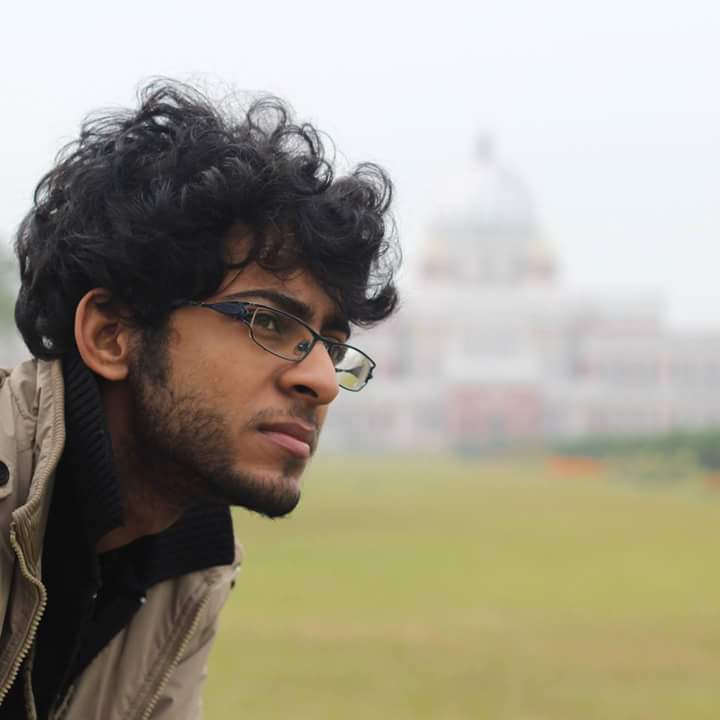
Guncha Arora (M.A. Fellow)
Guncha is currently pursuing her master's in international relations at Jadavpur University and has always been passionate about teaching and learning from the younger minds. She bagged the volunteer program from AIESEC in 2016 to teach in a primary school in Thailand for 6 weeks. She has also been actively involved in Child Rights and You as a volunteer and is currently also working at Redbull as a member of the Field Marketing team. Guncha has also worked at the Times of India for the Education Times for a year in 2015.
Apart from this, music and swimming are her answers in times of despair and food is her ultimate partner in life!
Sritama Chatterjee (M.Phil Fellow)
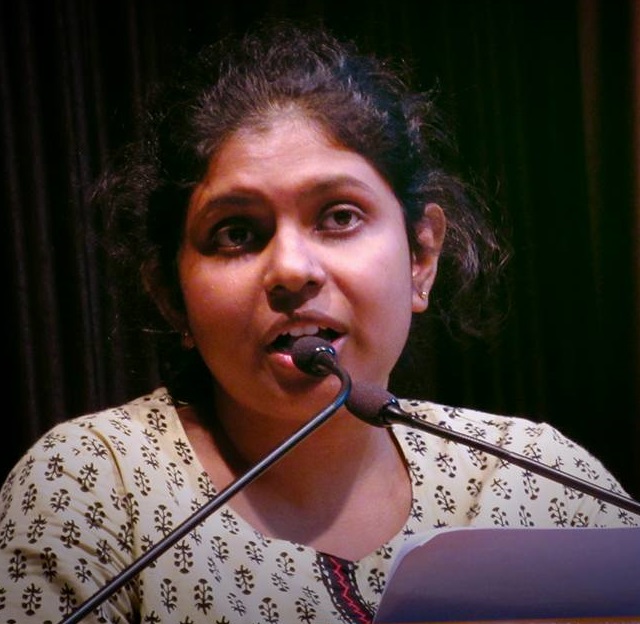
Sritama Chatterjee completed her B.A and M.A. in English from Presidency University and Jadavpur University in 2014 and 2016 respectively. Her research interests are Postcolonial Studies, Environmental Humanities and Utopian Studies. She won the Ecole Internationale Fellowship in 2015 from University of Paris, Sorbonne and represented Jadavpur University as an exchange student. Prior to her joining as a SYLFF fellow, she worked as a Research Assistant and subsequently as a Project Assistant in an EU-India collaborative project on online learning titled E-QUAL(http://www.projectequal.net/) with a consortium of partners including Kings College London and University of Bologna, Italy. Her work for the project was focused on understanding how online education emerged in India and its ramifications for the contemporary education system. The research report is awaiting publication from Jadavpur University Press.
For her M.Phil thesis, she intends to interrogate how the river Hugli and the river-front, as a fluvial conduit and space, inflict and mediate the ideology of the Empire in the early nineteenth and twentieth century, particularly focusing on migration, economy and ecology. In investigating the above question, she is drawing on a wide-range of archival resources that range from legal proceedings, correspondences, ship-records and annual reports of the Bengal Chamber of Commerce. If she is not typing frantically on her laptop or day-dreaming, she is usually seen swimming, eating and ranting about public policy. She can be contacted at sritamachatterjee36@gmail.com
Shounak Adhikari (M.A. Fellow)
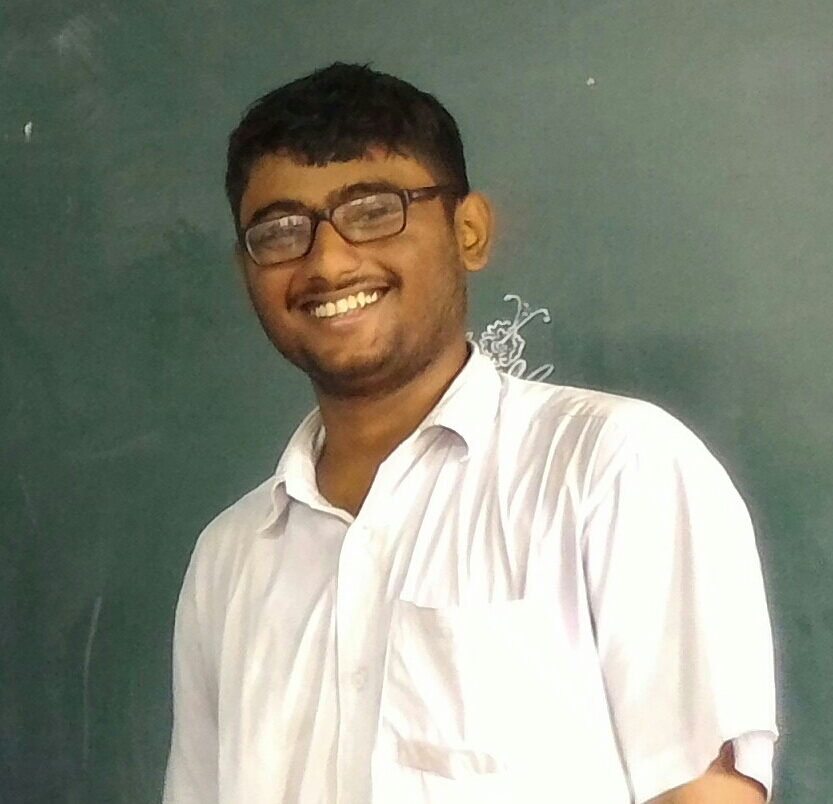
Completing his schooling from Howrah Zilla School, Shounak graduated with Bachelors in History from Ramakrishna Mission Residential College (Autonomous), Narendrapur in 2016 and is currently doing his Masters from Jadavpur University. As a SYLFF Fellow Shounak’s research addresses the changing nature of caste violence in post-partition West Bengal against the backdrop of the demise of self-identity movements and a subsequent rupture in dalit politics. While it is a fairly dispersed notion that caste works differently in West Bengal and the state was somehow able to relieve itself long of such ‘backward’ attachments where caste never really played any considerable role in electoral politics of the state, going against the grains of existing perception his own research tries to show that caste discrimination and prejudice still persists on a large scale, functioning more on the psychological level and is exhibited on the practices of everyday life. His second quest is to find how politics of inclusion rather the conventional modes of exclusion and identity appropriation has produced different forms of castigation and violence in prestigious higher education sectors of the state. Simultaneously, he is trying to create a taxonomy of psychological violence and understand how politics of reservation has fed both the inherent and manipulatively engineered casteism.
Apart from academics, Shounak has a long, ardent interest in the armed forces of the country. He has completed the 3 years’ NCC training course while in college and got a SUO (Senior Under Officer) rank, the highest rank given to a NCC cadet. He holds both ‘B’ and ‘C’ certificates from NCC and has participated in ‘SNIC October, 2014’ held at Peddapuram, Andhra Pradesh on behalf of the Directorate of West Bengal and Sikkim. He also was the awardee of the ‘Kankana Mandal Memorial Award’ (Medal), given to a final year Bachelors student with best all-round performance from his Department in 2016.
Since in school, Shounak is an active participant in sports, be it cricket or football but when not on the field, he can be found fondly immersed in vernacular literature.
Moitrayee Sengupta (M.Phil Fellow)
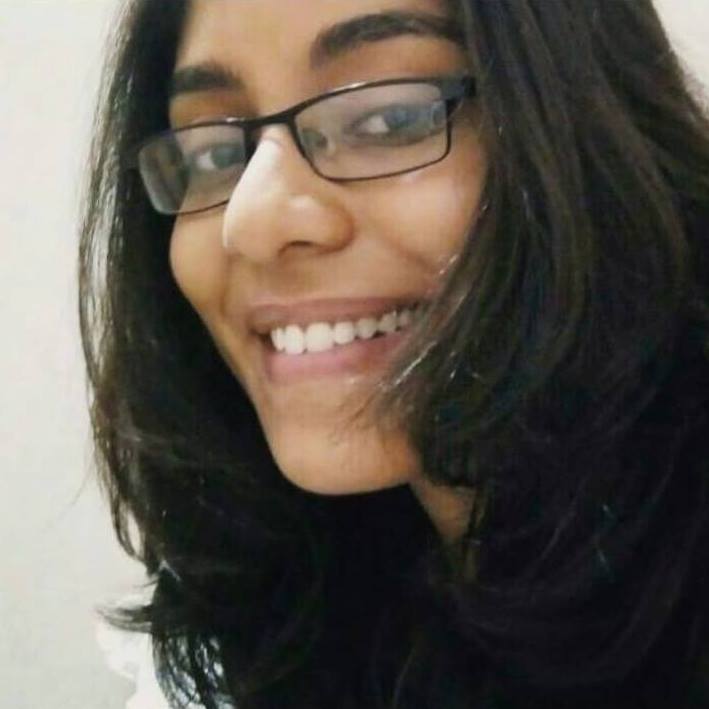
Moitrayee is currently pursuing her M.Phil at the Department of International Relations, Jadavpur University. She completed her graduate (2015) and postgraduate (2017) courses at the Department of International Relations, Jadavpur University.
Her research interests include International Relations Theory, Postcolonial Security Studies, Third World Security Studies, South Asia and Indian Foreign Policy.
Through her M.Phil thesis, she aims at understanding war and peace in the borders of South Asia by arguing that security is a non-generic process that cannot be objectively itemized using structural explanations alone.
Sawon Chakraborty (M.Phil Fellow)
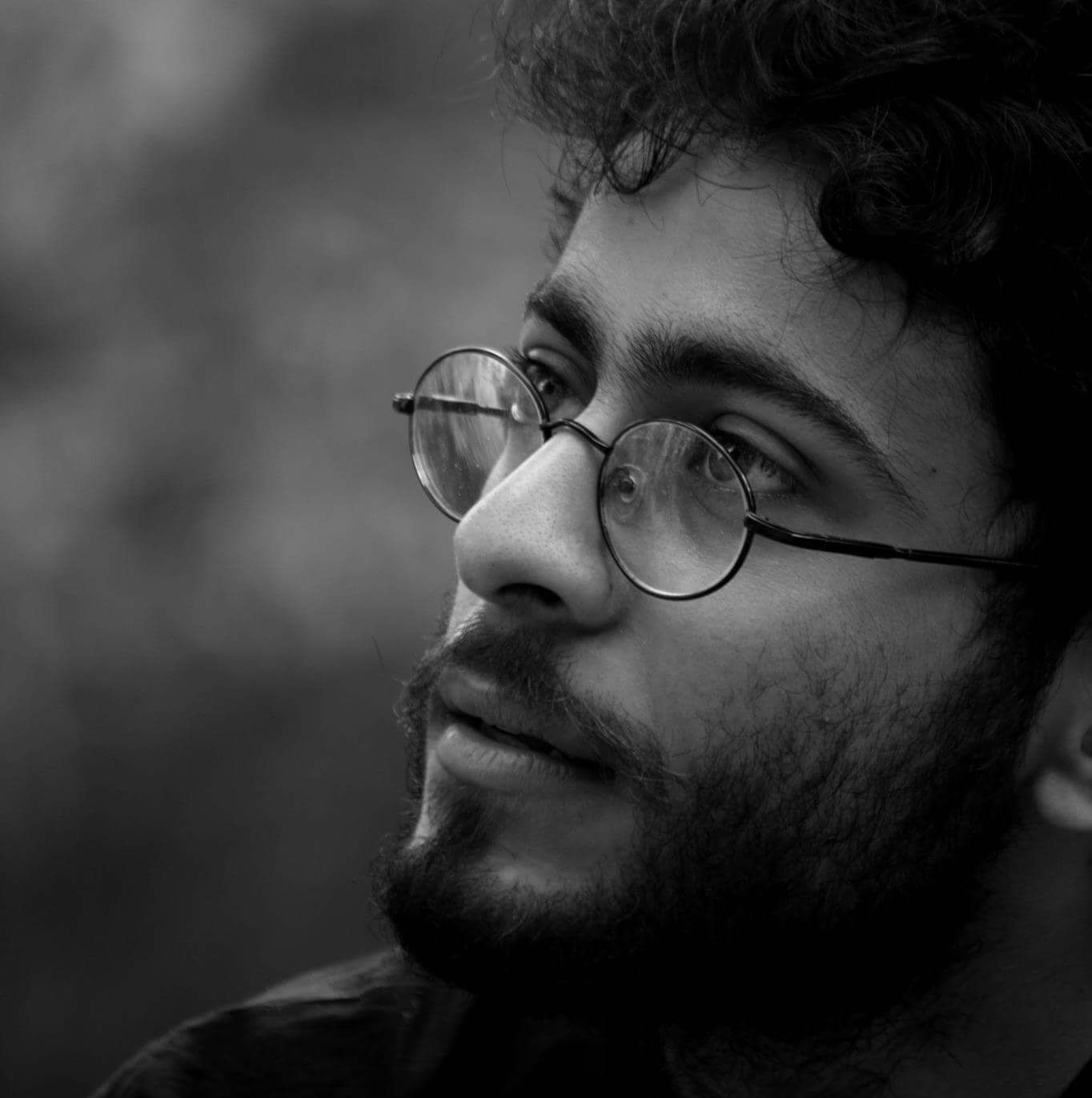
Sawon is currently pursuing his M.Phil at the Department of Comparative Literature, Jadavpur University. He completed his graduate (2015) and postgraduate (2017) courses from the Department of Bengali, Jadavpur University.
His reserach interests include identity strategy in fiction and border literature.
Through his M.Phil thesis, he is trying to understand how the people of Coochbehar construct their notion of selves in post-independence era. The research aims to understand how/if fictions, written histories and oral narratives manipulate the sense of propriety of a ‘citizen’ of Coochbehar, which was once a princely state.Class, community and historical consciousness are three basic parameters of the reserach work.
Amrita Mukherjee (M.A. Fellow)
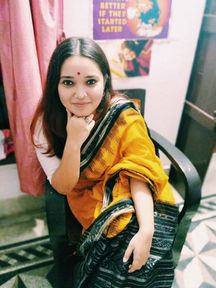
Amrita is currently pursuing her Masters' Degree in International Relations from Jadavour University. She completed her graduate degree (2016) from Department of Political Science, Miranda House, University of Delhi. She has worked with an anti-trafficking NGO based in New Delhi for a period of one year.
Her research interests include gender, conflict studies and broader policy oriented theorization.
Through her SYLFF research, she is studying existing processes of rehabilitation for survivors of human trafficking in governmental and non-governmental sectors. In analyzing the processes, the primary focus will be on the role agency of survivors play. It is largely going to take the shape of a legal and policy narrative.
Sreerupa Bhattacharya (M.A. Fellow)
Sreerupa is currently pursuing her Masters' in Department of English, Jadavpur University. She has completed her graduate degree (2017) from the Department of English, Jadavpur University.
Her research interests include culture and society.
Through her SYLFF research, she aims to delineate how migrant communities despite their liminal status, or perhaps because of it, help shape the character of our city as we know it today. In facilitating a better understanding of the crucial role these communities played in the social, economic and cultural milieu of the city, it could open up new conversations regarding the identity of these communities as more than mere ‘minorities’.
Manoswini Sarkar (MA Fellow)
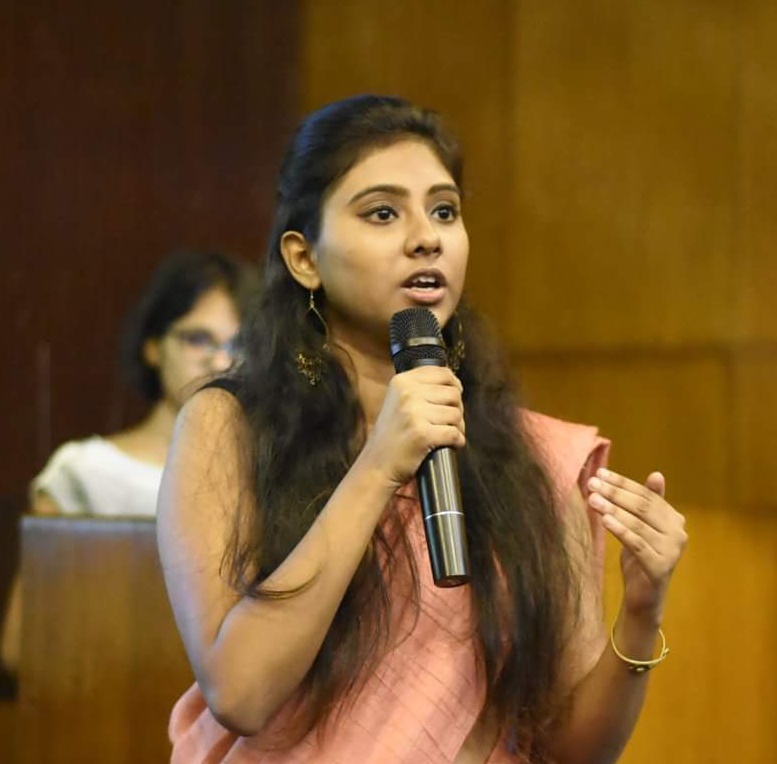
Manoswini Sarkar is currently pursuing a master's in Politics and International Relations at Jadavpur University. Her research interests include issues of labour, employment, social security and gender. Her master's thesis investigates if employment programmes benefit women and explores how the National Rural Employment Guarantee Act (MGNREGA) has contributed towards the empowerment of rural women in the Indian state of Jharkhand.
Shaberi Das (MA Fellow)
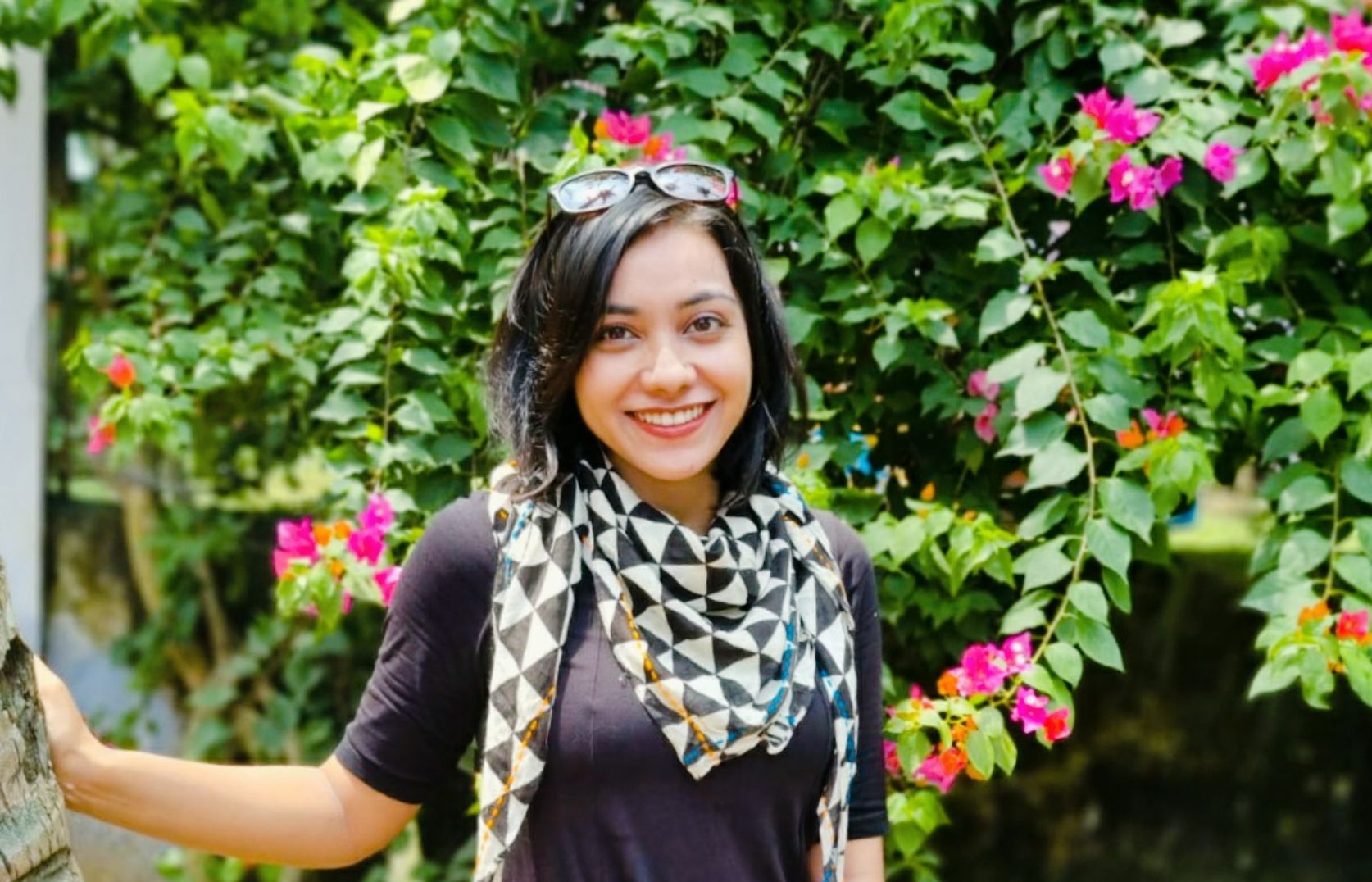
Shaberi Das (MA Fellow)
Shaberi Das is a master's student in the Department of English, Jadavpur University. Her research interests include gender, decoloniality, climate-driven losses and migration of local and indigenous communities, and sustainable development. Her master's dissertation explores the effects of cyclical migration from the Indian Sundarbans Delta on the lives of its women migrants and women household heads, using oral narratives to understand how short-term migration in the context of climate change influences gender roles, and women's mobility, agency and access to decision-making.
Shaberi firmly believes in the importance of centering the voices, experiences and knowledges of local communities in research, discourse and policy-making aimed at mitigating, or adapting to, climate change. She hopes that her master's research will pave the way for a lifetime's engagement with this issue.
When not in the field, Shaberi can be found teaching debate to high-schoolers, penning short stories she'll never finish, losing her way on long walks, or sipping her umpteenth cup of tea at the JU-Sylff office.
Lalrinawmi Colvom Lulam (Renee) (Doctoral Fellow)
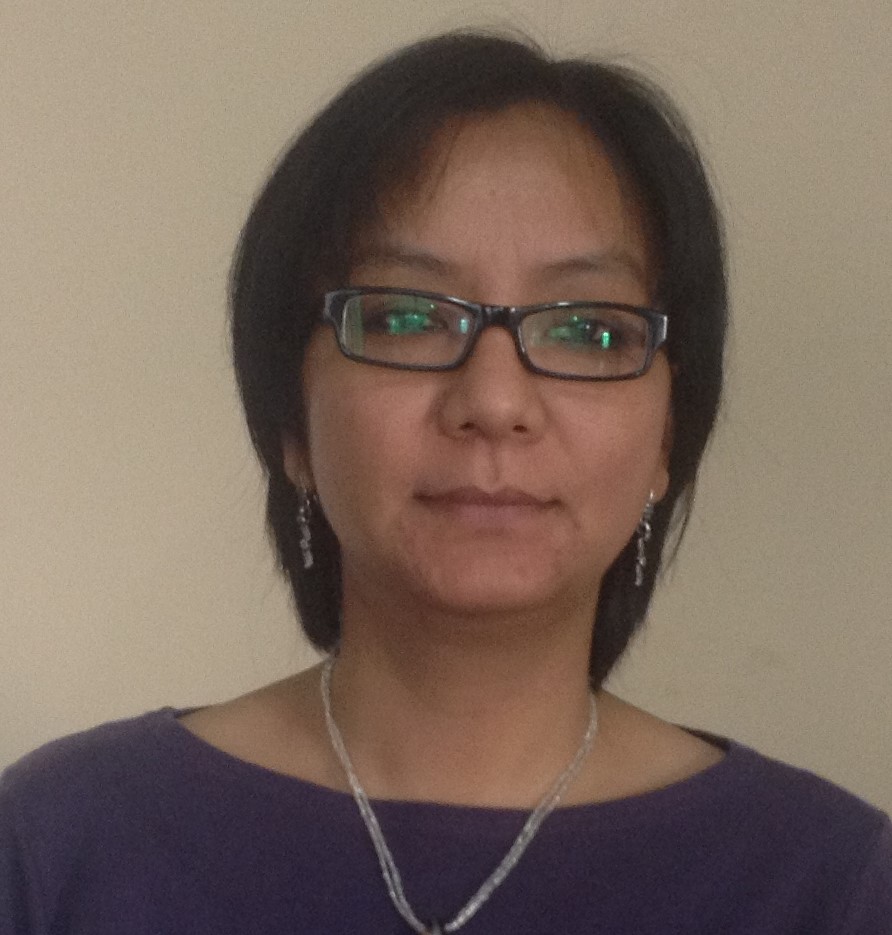
Lalrinawmi Colvom Lulam (Renee) (Doctoral Fellow)
Lalrinawmi Colvom Lulam (Renee) joined Jadavpur University to pursue Doctoral Studies in the Department of Comparative Literature after spending years on the field as an Independent Researcher working with communities in India’s North East. Having extensively immersed herself in the oratures of Mizo women composers of the late 19th Century, Renee’s research focuses on Mizo women’s history of song which she hopes can contribute towards reframing what we know of Mizo literary historiography to afford a wider context for remembering women’s voices. Remembering is an approach which asks a community to remember what they may have decided, consciously or unconsciously to forget.
Renee deeply believes in staying intellectually curious, the power of imagination, and remaining passionate about possibilities.


